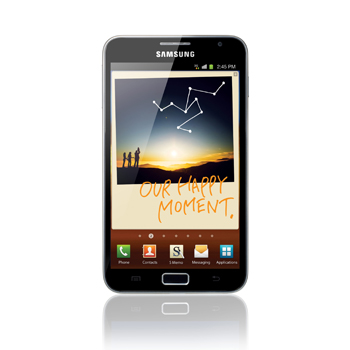Android: It's real and I am loving it


With the upcoming ICS update in the Premium Suite I think the Samsung Galaxy Note just may be the perfect Android device for me. I just ordered my own Galaxy Note this weekend and cannot wait to get it optimized for my usage and then do things such as handwrite equations that are solved via Wolfram Alpha.
The Galaxy Tab 7.7 is also a superb Android tablet with near perfect hardware and super fast Verizon LTE support. It is way too expensive for me though so I won't be picking one up at this time.
James discussed how the Android sales and activation numbers are calculated (such as including Kindle Fire sales figures) and stated that Google has allowed the manufacturers to create a jumbled mess of Android. I agree that Android is not a consistent platform, primarily when you look at media support, but I think the differences between manufacturers actually make Android more attractive.
I don't want every platform locked down like iOS and Windows Phone and with Android I have the choice of different user interfaces, different form factors, and a broad range of prices I can pay for devices. There is actually quite a bit of consistency across the Android OS though with a fantastic Gmail experience and a core focus on providing optimal Google experiences. If Google takes control and dictates everything, then it limits how manufacturers differentiate and may prevent low cost Android devices that are bringing people to Android by the millions.
I have been frustrated in the past by a lack of Android updates for some devices and the Android Update Alliance revealed at Google I/O last year is a myth. However, many of us reading this are on the cutting edge of mobile technology and I am not hearing as much frustration with lack of updates as we may tend to report and believe.
Consumers are getting more educated about mobile platforms, but I doubt many would even know what version of Android is on their device. As long as they can get their email, make calls, and play Angry Birds, they probably don't care if their firmware is outdated by newer devices. If you are happy with a device when you buy it then do you really expect it to be updated for free for the life of your contract? Devices are capable and full featured when you purchase them and it isn't always the manufacturer that limits the update process. Even if Google stepped in here, the carriers have the final say on updates and it seems the only company that has been able to temper carriers is Apple.
Jason has spent two years with Android and has owned some of the top devices with the Droid Bionic and Galaxy Nexus in his purchase history. He talked about some of the reasons he enjoys the Android platform, but Jason states he is sick of Android due to the failure in delivering updates that were promised months ago. Apple and Microsoft do a great job of getting updates to devices, even through carriers, but Google doesn't seem to have much influence here. Again, I don't think this is that important to most folks, but in today's smartphone market there is a reasonable expectation that you get updates to ensure your device is relevant for at least a year or two.
I have a few Android devices and will be regularly using my new Samsung Galaxy Note, Galaxy Nexus, and HTC Flyer since these devices let me customize as much as I want and excite the mobile geek in me beyond the locked down and controlled platforms. The stability and consistency of iOS and Windows Phone are appreciated and desirable so I will continue to use them too. Thankfully, we have choices and I personally hope Google continues to allow us and manufacturers to make choices.